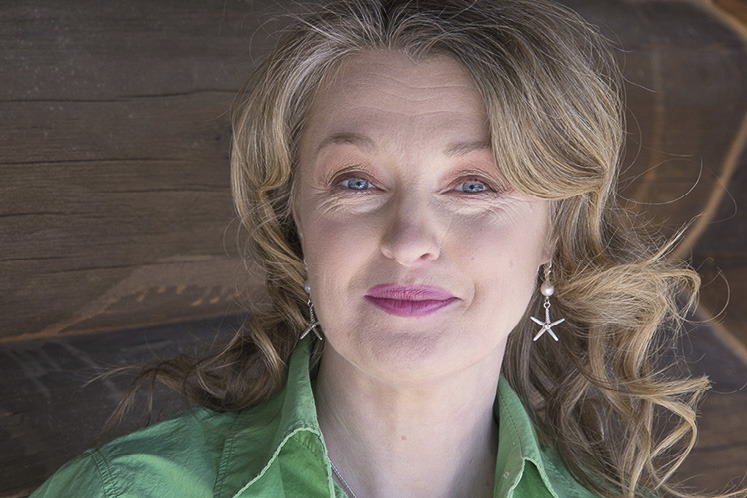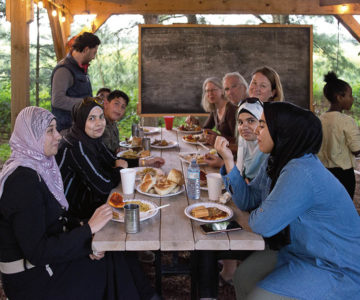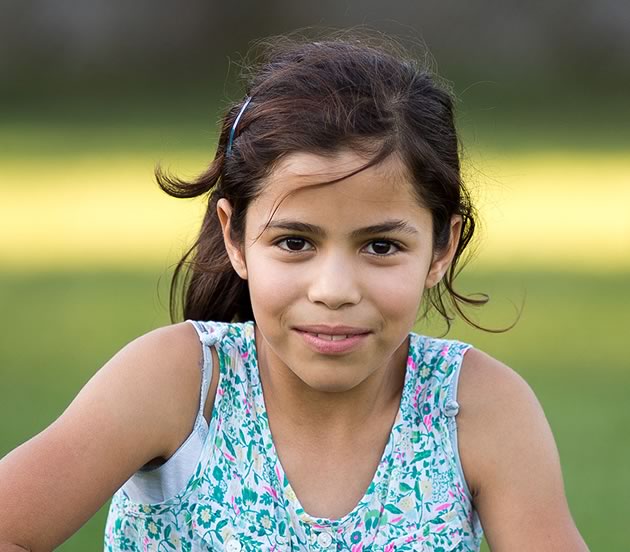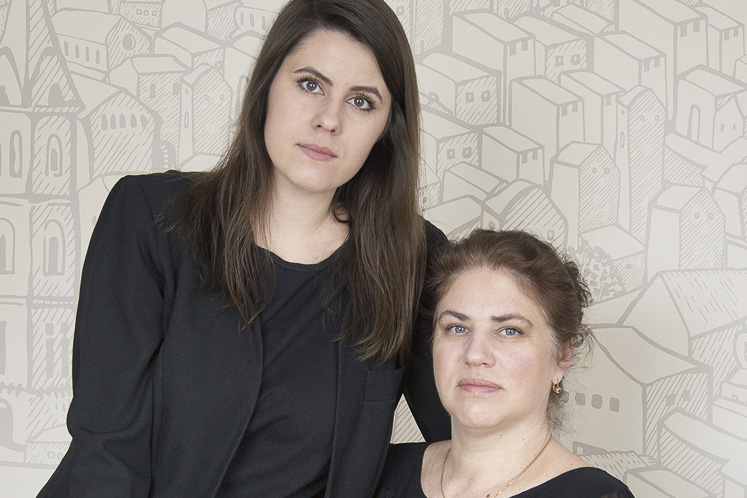Finding Sanctuary
Displaced by war, Ukrainians are offered a place of welcome in Headwaters.
The world has stood in awe of the courage of Ukrainian people rising to meet this moment in their history. Their fortitude, resolve and resilience certainly tracks with the quarter million Ukrainians who have come to Canada over the past century. Only Russia and Ukraine itself have Ukrainian populations larger than Canada. Historically, their descendants have thrived here. Clearly, those who have found refuge in our community, even for a short while, are cut from the same cloth. These are just a few of their ongoing stories and those of the generous Headwaters community who have lent a helping hand.
A tidal wave of powerlessness sweeps over Olga Sukhina at 2 p.m., February 24, 2022 – the first day of the Russian invasion of Ukraine.
Shelling has begun on the outskirts of Odesa, but her anxious dog needs walking. Olga watches vigilantly from her window in this southwest Ukrainian seaport, known as the pearl of the Black Sea. Just over a million residents live in and around the city’s historic core, designated a UNESCO World Heritage site for its roots dating back to the ancient Greeks. With dog leash in hand, Olga’s five-year-old son, Sava, heads down to play with friends as he often does, oblivious to the new perils of war. He’s inside the enclosed play yard of their low-rise apartment complex, normally a sanctuary for neighbouring families and children.
Suddenly, the deafening whir of a military helicopter swooping low over their courtyard scatters Sava and his playmates to nearby covered parking areas. Olga looks on in horror, with no idea if the aircraft is Russian or Ukrainian. “Just 20 hours after the war starts, I make a decision,” says Olga. It’s a decision unthinkable just the day before. By nightfall, Sava and his two older siblings, Alisa, 13, and Seva, 10, say goodbye to their father, Andrew. The four then set off into the night on a frightening journey of unknowns that, months later, would land them at Toronto’s Pearson International Airport, with one bag of necessities and one phone number.
At the same time, an ocean away from the conflict, a world away – Russian-born Katya Sundukova and her Canadian husband, Jason Campbell, also struggle with feelings of powerlessness, but from their log house on an idyllic wooded acreage in Caledon. What could they do to make a difference to Ukrainian families now scattering across the globe to escape this senseless conflict? A lot, it turns out.
Katya’s next steps would ultimately put her phone number in Olga’s hands. And while Katya could not restore the unimaginable loss of abandoning cherished lives and homes in Ukraine, she could share at least one powerful thing they’ve left behind – a network of community who can help these families figure out what’s next. It’s a network Katya would expand and offer to many more displaced Ukrainians landing in Ontario over the coming year.

Katya Sundukova has been the first vital contact for many arriving Ukrainians. Katya, her husband and son have hosted 15 families in their Caledon home.
“I am from Moscow. I am a Russian citizen. I am a British citizen and I moved to Canada from London 10 years ago with my husband, and I now have permanent resident status here. I also have Ukrainian roots and distant relatives in Kyiv. But none of this makes a difference,” explains Katya from the kitchen table in her cozy log home, coincidentally built in Ukrainian style. In many ways, her complicated background mirrors the complexity of the Russian invasion for everyday families on each side of the embattled border. “Russian, Ukrainian, we are all brothers and sisters,” she says.
What began for Katya as an effort to help a Ukrainian girlfriend escape the conflict soon broadened to include anyone who needs help. The moment the Canadian government started issuing visas to displaced Ukrainians in March 2022, Katya reached out to needy families on a global Facebook page, then WhatsApp. She offered to host them at her family’s home.
“When someone reaches out, I always answer,” says Katya. “Even if I cannot host, just knowing someone cares and will answer, I think it is important.” Now, a year later, Katya, Jason and their 13-year-old son, Sasha, have hosted 15 Ukrainian families. And Katya has helped hundreds more with resumé vetting, resources for household items, contacts and many other things. “They arrive traumatized, in a fog. They often leave behind husbands or older relatives who are unable or choose not to leave,” she explains. “I can make a little individual peace for them in my home by looking after them and by just giving them support and help.”
Most of Katya’s families have not remained in Headwaters. Our sparse population and lack of reliable public transit make finding employment and the logistics of everyday life too difficult. Still, Katya’s offer of a soft landing has been a lifeline to all – time to breathe, regroup, and with the help of many neighbours, muddle through the complicated mechanics of building a new life. It is lifeline that Olga and her young family will never forget.
Olga, Alisa, Seva and Sava’s long journey
The week leading up to February 24 is filled with all the things Olga cherishes about life in Odesa – family dinners, acrobatic lessons and sports for the kids, the English-speaking club and dog walks through Odesa’s historic streets. A stark contrast to their terrifying escape.
Having just sold their car, Olga calls around frantically to find a driver. Finally, one man agrees to drive them to a village on the border of Moldova. But they soon discover that the shortest route to the border is a solid, unmoving stream of cars, so Olga makes another hard call – they turn instead to the much longer route, 150 kilometres hugging the Black Sea.
Eerily, there is not another car on this road. Soon, out of their left windows, they see why – Russian ships wait just offshore. At the long Zatoka bridge southwest of Odesa, their driver turns off the headlights to avoid being targeted. The bridge is bombed just two weeks later.
At the border, they sleep in their clothes on the floor of a military hospital, shoes on and bag in hand, no internet to reach loved ones or make plans. “Ukrainian soldiers said if we are bombed, you’ll need to run into the fields. I knew the road that would lead to the border. I knew the direction to run,” she says. Olga and her children will stay here for a month.
It’s a long story and a five-month odyssey, via Bulgaria, Romania and Greece, that finally brings this young family to Toronto. Somewhere along the way, all Olga’s social media accounts, email, even her contacts are frozen on her phone. Only one app works.
“It was a miracle. My phone would only save WhatsApp. And somehow Katya contacts me,” explains Olga. “We text each other. I don’t remember when. But I save her contact. Only this contact. No other.”
Once they arrive, the family is offered temporary shelter in a Red Cross-sponsored hotel room near Toronto airport. “I remember that I have only one contact, Katya. I text her and she answers. Katya says, ‘I can help you. Jason will be there in 20 minutes. Organize your luggage, and you come to my home.’ I was shocked. I was so surprised,” she pauses, her voice trailing off with emotion. “She saved me.”
With Katya’s help, Olga connects with a Ukrainian group in Toronto, but high rents and the six-month payment often required up front soon prove a move there is impossible. Instead, Katya connects the Sukhinas to a hosting program of the Chapman’s ice cream family of Owen Sound on Lake Huron. Once again settling in a port city, they now have an apartment for six months free and an entire community eager to help with next steps. The Chapman family have deep roots in Ukraine.
Olga, a marine engineer by trade, and her husband have been import-export entrepreneurs in Odesa. Today, Olga has a job as kitchen staff in a local restaurant. She also creates Ukrainian dishes – cakes, borscht and perogies (she says she’s now made thousands of them) – that she and her children sell at the local farmers’ market. She pays her rent. And her views of small-town life have changed.
“Canada changed my life,” says Olga. “Nature here heals us.” When asked about the dream of one day returning to Odesa, Olga says the uncertainty of the ongoing conflict, the devastation to the world she once knew thwarts any long-term planning. “It’s hard to come to another country,” she says, but a friend back home has told her that if she returns to Ukraine, she will find that it too has become “another country.” For now, Olga says, “I don’t have a plan. My plan … to have a happy life for me and for my kids. I think only one day. One day. One day.”
The complexity and mountain of paperwork involved in building a life from scratch, like the Sukhinas, is mind-boggling, never mind if English is not your first language. Still, one thing is certain – it all starts with a host like Katya.
“They come and Canada is giving a work permit card for the first three years. And they are offered $3,000 for adults and $1,500 from the government for children, which is needed for the first few months of rent. But it is impossible to get this money, to start working or to do anything without an address. It is a loop,” Katya explains. You need a Social Insurance Number to work, to get a health card, but you need an address for a SIN number. You need a SIN number for a bank account, but you need a bank account to find an apartment and address, or to receive the one-time government stipend. And so it goes. “And that is why I have had a lot of people registered at my address.”
Navigating this initial administrative maze is just the beginning. What’s next takes a village, and for the families Katya is helping, it is a growing “village” of caring locals.
Like many in Katya’s network, retiree Anne Clark in Caledon found Katya via her posts on a website and app called Nextdoor. It connects local communities on everything from neighbourhood news to finding a good plumber.
“I saw Katya’s post about a family she was hosting and she was looking for local people who could help them practise their English,” Anne says. She also reached out to others who might have useful household necessities to donate. She’s even made space to store the donations in her basement for when new families arrive.
Lynne Smith, a longtime resident of East Garafraxa, has likewise reached out to her church network. Russian-born Nik Ianevich of Loretto contributes by delivering these local donations to families in their new homes. Gabe Preczner, senior vice-president of Alero Worldwide in Bolton, donates furniture, too, and is looking for ways to hire Ukrainians. And King’s College School in Caledon held a Christmas fundraiser to sponsor one of Katya’s families over the holidays. These are just a few in her community of guardian angels.
Still, as Katya’s community continues to grow, so does the need to help more families arriving. Certainly, the basics required to forge their new lives are similar. They share the trauma of war, but each of their still unfolding personal stories is unique.
Olga, Max, Vitaly and Vlad leave Russia
“The last seven or eight years we lived in Russia because my husband is Russian,” says Olga Koval in her new apartment in Weston, Ontario. Family life with her husband, Max, and sons Vitaly, 11, and Vlad, 6, carries on in the background as we chat. “But most of my relatives are in Ukraine still.”
Unlike many families forced from Ukraine, the Kovals had a few options. Canada was the only country that would accept Russian partners of displaced Ukrainians – again reflecting the tangle of interconnectedness across this war-torn border. Still, like all the others, they too feel powerless.
“When the war came to my home region, Kharkiv, Ukraine, we were in Russia and I was woken up. My mother called me. It was early morning.” Olga pauses to gather herself as she recounts the precise moment. “She said, ‘Olga, the war begins. And there are so many planes.’”
What follows for Olga is a month of unthinkable worry from her home in the Russian city of Izhevsk – ironically, a weapons manufacturing centre. Almost 1,800 kilometres away, her parents, grandparents, sister, niece and cousins are all in the line of those first brutalizing attacks. Communications are shoddy as Olga tries daily to check in on family members who are taking cover in unheated basements of old buildings and fruit cellars with dirt floors in the middle of February. There is no way to help – even sending money is forbidden by the Russian government. That is a tipping point. As soon as news hits of Russians leaving for the borders of Armenia or Georgia, Olga and Max know what they must do.
Through all this, Russian misinformation about the war swirls through their community in Izhevsk. As a Ukrainian, Olga has always felt accepted in Russia, but now things are changing. It is time to leave.
The Kovals are one of the first to apply for the visa program in Canada. Their acceptance comes in just three weeks, but it takes months of planning before they can leave. The kids need to finish school. Olga closes down her English tutoring business. Max ties up his work as a cyber security engineer in the pipeline industry. With the help of Olga and a tutor, he learns some basic English. They sell their car – all the myriad details of shutting down one life and planning for another. “But even with all the preparation,” says Olga, “Canada is a completely different world.”
Of the five Canadian contacts Olga finds on a global Facebook page of possible hosts, only Katya responds – again. As with the others, Katya meets the Kovals at the airport after their gruelling flight via Turkey and Denmark, then hours in customs. In the days ahead she’ll guide them through all the forms and bureaucracy, drive them to the foodbank, translate at the bank, help them plot out next steps. And when their two weeks of required Covid quarantine are over, Katya offers more.
“She said, ‘I can help you with school for kids too,’” recalls Olga. “She says her son, Sasha, goes to the Palgrave School. She says, ‘It’s a good school. And we have a bus. Your kids can also go.’”
Olga is anxious their first day, but to say Palgrave Public School staff, students and parent community embraced Vlad and Vitaly would be an understatement.
“They understood every problem of my children and they said, ‘You shouldn’t worry about them. We will help them,’” says Olga of the teachers at the Palgrave school. “‘We will translate for them. If they have problems, I always call you.’” Soon parents start sending clothes, books, games and even cheques. Of course, Vlad and Vitaly thrive here.
Two and a half months later, the Kovals leave Katya and move to their new Weston apartment, the only one Olga can find that does not insist on six months up front. Max starts the job Katya helped him find, laying fibre optic cable in the city. Vlad and Vitaly start school, and the family begins connecting with other Ukrainian families in the neighbourhood. Katya helps some of them too.
Nibbling on a honey biscuit Max purchased at a nearby Ukrainian bakery, I ask, “And how are the kids enjoying school here?”
With a half grin and a chuckle, Olga replies simply, “It is okay. But it is not Palgrave.”
Anna and Yuliia’s road trip to Hockley
One phone number, one person willing to answer the call for help – it’s a striking common thread through these stories. But the tenacity and resourcefulness to get to a place where that number becomes a lifeline – that’s familiar too. Few embody this in-the-bone grit more than 28-year-old Anna Omelchak.
A born entrepreneur, Anna’s chosen profession of architecture wasn’t big enough for her ambition. In February 2022, Anna’s project management consulting business is overseeing various construction projects in Kyiv. Her mother, Yuliia Melnychenko, and her grandmother live together in the much smaller nearby city of Irpin. Anna and her mother, an accountant, have poured every penny into a total renovation of the house there. Still, Anna far prefers the hustle of Kyiv.
“I like this city because there is an atmosphere to do something, to achieve,” she says. “You wake up in the morning, you go and you are so tired when you come home. I like that.”
On February 24, the shudder of bombs awakens Anna in her Kyiv flat, but the significance doesn’t register. She showers, dresses and heads eagerly to work, like any other day. “But when I walk on the street, I see everything is not the same,” she recalls. Soon the magnitude of what is happening becomes clear. By evening Anna is huddling with neighbours in their unheated basement. A couple of days later, news of two bridges bombed in Irpin changes everything.
Their house in the town is partially damaged and there’s now only one way out for her mother and grandmother. “They don’t have a car and they don’t have their driver’s licence,” explains Anna. “They are quiet people. They don’t know what to do.”
Anna tells her mother and grandmother to leave Irpin. She tells them what direction to walk. She jumps into her car, taking backroads to avoid blockades. “Nobody knows what is in the next 100 metres. I am very scared.”
Before her phone dies, she assures them she will find them on the road. And somehow, eventually, she does. Together at last, they travel across the whole of Ukraine, then across the border to Anna’s friend in Poland.
It’s hard to summarize the frightening, yet remarkably epic road trip Anna will lead in the months ahead. Her grandmother chooses to stay behind in Poland with family. And like so many Ukrainian elders, she’ll eventually insist on returning to her home in Irpin, whatever the dangers. For Anna, though, the prospects in Poland seem limited – too many people looking for work. The road ahead beckons.
“I started to understand which country I can choose to work and earn some money, and I want to have a life,” she explains.
Twenty-three countries, countless stays with European hosts willing to take in displaced Ukrainians, endless broken conversations in myriad languages, and two Canadian visas later, Anna and her mother finally end up in Britain’s Isle of Wight. At some point along the way, Anna also finds that one important contact who will change everything. Ukrainian-born Rostyslav Khomyn immigrated to Hockley Valley from Ukraine 30 years ago. He is Anna’s Katya.
“He called me back in one minute,” remembers Anna of that first call to Ros from England. “He told me, ‘I have a place [for you] to work,’ because his daughter used to work for this place. He tells me to sell my car, to buy plane tickets.” And just like that, Anna has a plan. There are more twists and turns, but not long after, the two women board a flight to Toronto, en route to Hockley Valley. She doesn’t even know Ros’s last name.
Today, you’ll find Anna behind the counter of Hockley General Store. Her mother, Yuliia, works in the kitchen. They both live upstairs – for now, Anna says. She and Ros check in with each other weekly. “He’s like my second godfather,” she says.
“I’ve given help like this to more Ukrainians than I can count now,” Ros says. And like Katya, he answers every call.
For Anna, it’s all about what’s next, and she has big plans. She’s bought a used car to expand her prospects. She’s pushing her mother to get her driver’s licence and take English lessons. “I want to help my mother find her life, maybe find a boyfriend,” she chuckles. Anna is keen to rekindle her career in construction and maybe restore their damaged home in Irpin. But her most pressing plan involves her grandmother’s big change of heart.
“Soon I will go back to Ukraine for a few weeks to pick up my grandmother,” she says with a broad smile. “At last, I keep my family together.”
It’s hard to measure the impact of people like Katya, Ros and their generous community of friends and neighbours. Even their smaller gestures can make a profound difference.
Early in the war, at the height of unknowns, two other Ukrainian families arrive together in Toronto. They’ve met each other during their months-long odyssey. They have a final destination, a place to stay, a community waiting to support them. Even still, Katya reaches out. She knows what they’ve been through. She senses staying together gives them comfort and she insists they come to her home for a couple of nights – a brief respite before their final leg to Prince Edward Island.
The two mothers, Olena Poltoratska and Nadiia Pyvovarova, their four children and their dog join Katya, Jason and Sasha in their three-bedroom home – mattresses on the floor and one bathroom for all. As always, Katya pitches in to navigate myriad challenges, including arranging a plane ticket for their dog. Still, there is something else about this brief stay that means even more.
“It was like magic what she gave us when we arrived in Canada, in your country,” says Olena, who is from Dnipro and now settled in Charlottetown. “We don’t know anything. And she gave us this feeling of being invited. She gave us two days of no worry. It was a feeling of home that we had already forgotten.”
Want to help? Here's how
To learn more about ways you can help Ukrainian families landing in Headwaters, reach Katya at [email protected]
Find out about hosting Ukrainians at icanhelp.host.
Related Stories

Feeding the Soul
Sep 20, 2022 | | CommunityCommunal gardening helps newcomers nourish the sense of community lost when they were forced to flee their homeland.

Syrian Refugees in Headwaters
Nov 22, 2016 | | Back IssuesEach Syrian refugee settling in the hills arrives with hope for a safer life. Here we meet some of them, along with the locals who are lending hands – and hearts.











